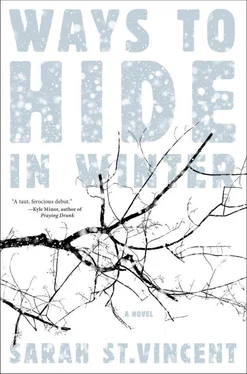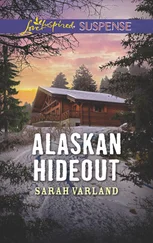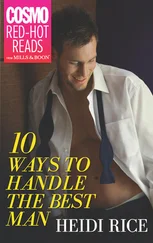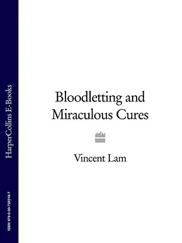I kept clicking, almost aimlessly, beginning to give up hope of understanding the thing I was so clumsily trying to grasp.
Then, as if a shadow had fallen across the sun, I found the photographs. Page after page of them, in merciless color. Photographs I immediately wished I had never seen.
There were many things I had learned to face, to think about, after the accident. Blood, bones, nerves, skin and the various things that could be done to it. Even so, the images on the screen were so upsetting that my breath caught in my throat. I pushed the chair back, as if to distance myself from what had appeared before me. Inhaling, I placed my hands on my knees, looking away before forcing myself to look back again.
I had thought I understood most of the ways a person could inflict pain on someone else, most of the ways a limb could be twisted, flesh bruised or burned or broken.
I was wrong.
The images were from a place with bars, and the worst thing, I saw right away, was the eyes. Most of the photographs of the inmates, or detainees, or whatever they were, didn’t show faces; they only showed torsos, backs, arms, the skin striped—the captions said—from whippings with electric cables, bruised from beatings, swollen from having been immersed in boiling water. Hands were missing fingernails; feet were broken or maimed. But the eyes, the eyes looked as though they belonged to dead people, even though everyone in the pictures was alive, at least when the photos had been taken.
Fighting a sense of sickness, I closed the browser.
I was taken in for questioning, I heard the stranger say.
Not the ordinary police, but a kind of special police. The police who do these things.
One year, when my brother and I had been very young, we’d sat at the Thanksgiving table and listened to my grandmother’s brother babble. He’d looked even older than he was, white-haired and sallow, picked up and brought over from the hospital or wherever it was he normally lived. Over the pie, his run-on talk had turned to something that had happened forty years earlier, something on a grassy hill on an island, a kneeling Japanese prisoner with his hands tied behind his back, a knife between someone else’s fingers, the cutting off of ears and nose, blood everywhere. Someone had gotten him to shut up, my great-uncle; the war hadn’t been like that, as we all knew. It was sailors kissing pretty nurses, it was old men with medals sitting in the review stand at the town parades.
Lost ears, lost noses, burns, whippings.
I stood up, leaning against the back of the chair until the nausea had passed. The librarians turned to watch me as I walked out the door.
At the Joyride with Beth that night, I couldn’t shake the sense that the world had spun off its axis into an alternate version of itself. Your uncle, I wanted to say, is walking around with a .45-70 out of season. And I’ve spent the past five hours thinking about what people look like when they’re boiled.
We started a game of darts, but I kept getting lost in thought, standing in a shadow with my drink. The photographs seemed to hover in front of me.
I couldn’t be sure this was what the stranger was afraid of, but something told me it was. Maybe it wasn’t the whole story, but some part of what I had just seen was hanging in the background, I thought.
Beth, too, was unusually quiet. When I finally roused myself to ask her what was wrong, she shook her head. “Oh, you know. Just—the situation. Being without Mark; single parenting. That’s all. I’m just feeling bad for myself, really.”
I looked at her, and the images that were floating in my vision cleared for a moment. “Are you sure?”
“Yeah.” Smiling lopsidedly, she reached for my hand and led me to an empty space. “Be my date? Maybe we’ll both feel better.”
We danced a few steps as we sometimes did when the bar wasn’t crowded, leading one another through spins in a way that was mostly ironic, but our hearts weren’t in it. I came to a stop, leaning against the pool table. When I focused again, she had already reached the other end of the floor. Tilting her head back, her soda spilling over her fingers, she swayed wistfully by herself, drifting away.
“You know,” she said when she came back, “sometimes I’m not so sure about all this.”
“All what?”
She leaned her head on my shoulder. “I don’t know. All of it.” She raised her hand in a helpless gesture. “The things we do. The way life takes hold of us. We think we’ve got it all figured out, and then—” I felt her sigh. “You know?”
The pictures still floated in front of me. I took a long sip from my glass, feeling the liquid burn on the way down.
“Yeah,” I said. “I do.”
For two days, the stranger didn’t leave his room. Every few hours, I would find an excuse to wander onto the porch, dusting the tables and chairs, glancing up at the darkened window I thought was his. As far as I could see, there was no movement behind the curtain. I pictured him stretched out on his cot in the wan gray light, his hands behind his head, staring at the ceiling, imagining the things he feared most. Or maybe remembering them.
I waited, respecting his anxiety. There was no reason, I reminded myself, to think the situation—whatever it was—had changed. Jerry had just figured out that he could take advantage of me; I certainly wasn’t happy about it and had no idea what I was going to do, but it had nothing to do with anybody else. All he would have seen when he’d walked into the store was two people playing a game, even if one of them was unusually jumpy.
I understood fright, though, especially fright that was rooted in the past and therefore harder to get rid of. And if there was one thing I truly grasped, it was the desire to shut out the world.
Finally, however, I began to lose patience. No matter what this deeply odd person was doing here, he couldn’t possibly think he could stay hidden in some hole in the backwoods of Pennsylvania forever. It just wasn’t practical. He was more intelligent than that—and, I told myself, so was I.
The next morning, I climbed out of the car with a newspaper under my arm, noticing that Martin’s red station wagon was parked behind the hostel. I dropped the things I was carrying onto the hood of the Jeep and bent down to grab a handful of gravel. Mounting the hill, I positioned myself where the stranger could see me and cocked my arm back. The stones made a clicking sound against the second-story window, quiet but insistent. I kept flinging them at the glass pane until I ran out, then stuffed my hands into my coat pockets and waited.
Nothing happened. Cursing quietly and biting a nail, I turned to go.
I was halfway down the hill before the door creaked open behind me and the stranger stepped out, walking toward me, glancing out over the landscape. When we met, he pressed his arms to his sides, as if to gather himself, then looked away.
“I’m sorry,” he said. “I’ve been rather ill, I’m afraid. I would have liked to come visit you, but of course I didn’t want you to become sick as well. Fortunately, I think I’m better today, but—”
I cut him off.
“The people who brought you here,” I said, looking him in the face. “Are they ever coming back?”
He drew a breath.
“Nobody brought me here,” he said finally. “I walked.”
“Really?”
“Yes, of course.”
“Because that’s not what you said at the time.”
For a long moment, he was silent.
“Come on,” I said. “Don’t try to pull this stuff on me. I thought we gave that up weeks ago.”
He shifted his weight, rubbing one of his shoes against the other. “Yes,” he murmured, clearing his throat. “I suppose we did. I’m sorry.”
Читать дальше












